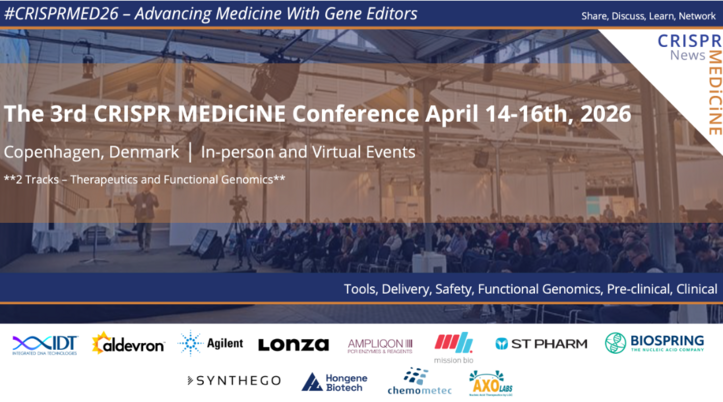How CRISPR Could Help to Treat Alzheimer’s Disease
During the last few weeks, we've seen the approval of CASGEVY™ (exagamglogene autotemcel, or exa-cel) for the treatment of sickle cell disease and beta thalassemia by the United States FDA, the UK Medicines and Healthcare products Regulatory Agency, and Bahrain's medicines regulatory body. This milestone - the first-ever approval or a gene-editing therapy - provides hopes of a better life for the many thousands of people living with those diseases, and also raises hopes that similar approaches will result in new therapies for many other rare diseases.
An article published in Nature yesterday outlines the progress being made to develop new therapies within the Alzheimer’s disease field. More than 55 million people are affected by dementia worldwide, and this figure is expected to almost triple by 2050. Alzheimer’s disease is the most common form of dementia.
While some antibody-based treatments are available to slown down the progression of Alzheimer’s, these often don’t benefit people with very advanced disease, concerns exist about their safety, and they are no benefit to individuals who carry mutations that increase their risk of developing the disease.
Editing of gene variants known to increase the risk of developing Alzheimer’s may contribute to alternative treatments that can be adminstered to individual before the disease debuts. Two genes currently in focus are apolipoprotein E (APOE), which is associated with late-onset disease, and PSEN1, which encodes presenilin-1 (PS1) and in which certain mutations have been linked with early-onset disease.
Yesterday's article in Nature summarises the outcomes of recent attempts to target APOE and PSEN1, and highlights the concerns in the field regarding safety, lack of clinical experience in applying CRISPR in the brain, and the high costs of gene therapies.
Read the full article in Nature here.
To get more CRISPR Medicine News delivered to your inbox, sign up to the free weekly CMN Newsletter here.
Tags
CLINICAL TRIALS
Sponsors:
Suzhou Maximum Bio-tech Co., Ltd.
Sponsors:
Zhejiang University







